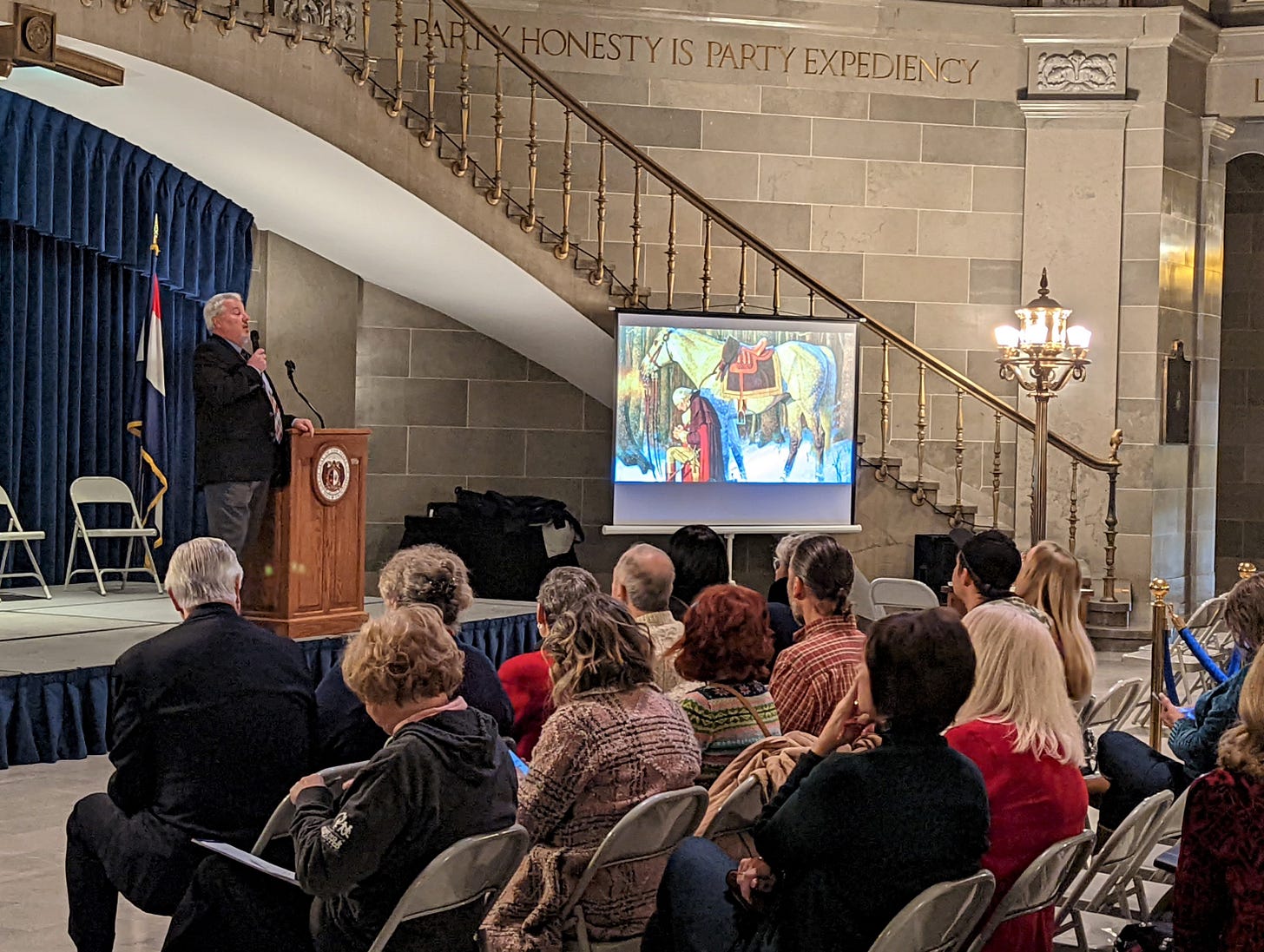Word&Way News: Jan. 7
Here’s the top news of the week from Word&Way. In addition to an essay on Epiphany and insurrection that is free for anyone to read, paid subscribers to A Public Witness received an analysis of the prayers in the U.S. Capitol a year ago on Jan. 6.
If you missed that piece, upgrade to a paid subscription today!
Top 5 at wordandway.org
Who Are You Following? Angela N. Parker reflects on Epiphany and the Jan. 6 insurrection, particularly looking at the role of the star in the biblical text.
Which King Do You Choose? John Sianghio reflects on Epiphany and the Jan. 6 insurrection, particularly looking at the competing visions of power.
For Dying Congregations, a ‘Replant’ Can Offer New Life. Bob Smietana looks at a missional strategy of reviving dying congregations by utilizing tactics of new church starts.
Stay of Removal Issued for Three Immigrants Who Resided in ‘Sanctuary.’ Jack Jenkins reports developments for three immigrants who lived in houses of worship to avoid deportation.
Preemptive Love Board Cuts Ties with Founders Jeremy & Jessica Courtney. A nonprofit praised by Christian celebrities for its work in Iraq and elsewhere cut ties with its founders after former employees complained of an abusive work environment and misleading fundraising practices.
Other News of Note
Robert P. Jones has a Substack newsletter you should subscribe to: White Too Long. On Tuesday, he wrote a piece thinking about Epiphany and the Jan. 6 insurrection. And he shared his interview on our podcast Baptist Without An Adjective that was recorded last year right after Jan. 6.
Jimmy Carter, that Baptist Sunday school teacher and former president who has monitored elections around the world, wrote an op-ed about his concerns for the U.S: “I fear for our democracy.”
Jim Wallis spoke with NPR about Jan. 6, Christian Nationalism, and racism.
With Russia amassing troops on its border with Ukraine, Christianity Today reported on Baptists and Pentecostals struggling in eastern Ukraine already under the occupation of pro-Russian forces.
The New York Times interviewed Katharine Hayhoe, a climate scientist who has been trying to convince her fellow evangelical Christians to take climate change seriously. She complained: “Nowadays something like 40% of people who self-identify as evangelicals don’t go to church. They go to the church of Facebook or Fox News or whatever media outlet they get their information from. So, their statement of faith is written primarily by political ideology and only a distant second by theology.”
Dangerous Dogma
This week: Obery Hendricks on Christians Against Christianity
Quick Take
by Brian Kaylor, Word&Way Editor-in-Chief
Yesterday, on the first anniversary of the worst attack on the U.S. Capitol since 1814, Sen. Lindsey Graham of South Carolina, complained about what he saw as “brazen politicization of January 6” after President Joe Biden correctly criticized his predecessor for helping inspire the attack. The complaint was odd since Graham himself had denounced Donald Trump in the aftermath of the insurrection (before returning to the ex-president’s orbit). But the complaint also doesn’t make sense because we’re talking about an attack on the government building where our elected representatives were meeting to certify the results of an election. If that’s not political, then nothing is!
In a similar vein, some tried to downplay the religious element of Jan. 6. We received comments on social media to our analysis of Jan. 6 and Epiphany criticizing us for being political and not religious. Of course, our piece literally devotes a lot of space to talking about — and quoting from — the Gospel of Matthew’s account about King Herod, the magi, and the birth of Jesus. More importantly, as that text shows, we cannot divorce our faith from the public square as if Jesus is just the King of the afterlife.
When people violently storm a government building while carrying Bibles, Jesus signs, and Christian flags, that is not only political but religious. And to ignore the event is to make a political statement. To remain silent is to say something. We must not condone through our silence the heresy of Christian Nationalism. Our democracy and, more importantly, our faith demands we speak.
Photo of the Week

Thanks for reading!



